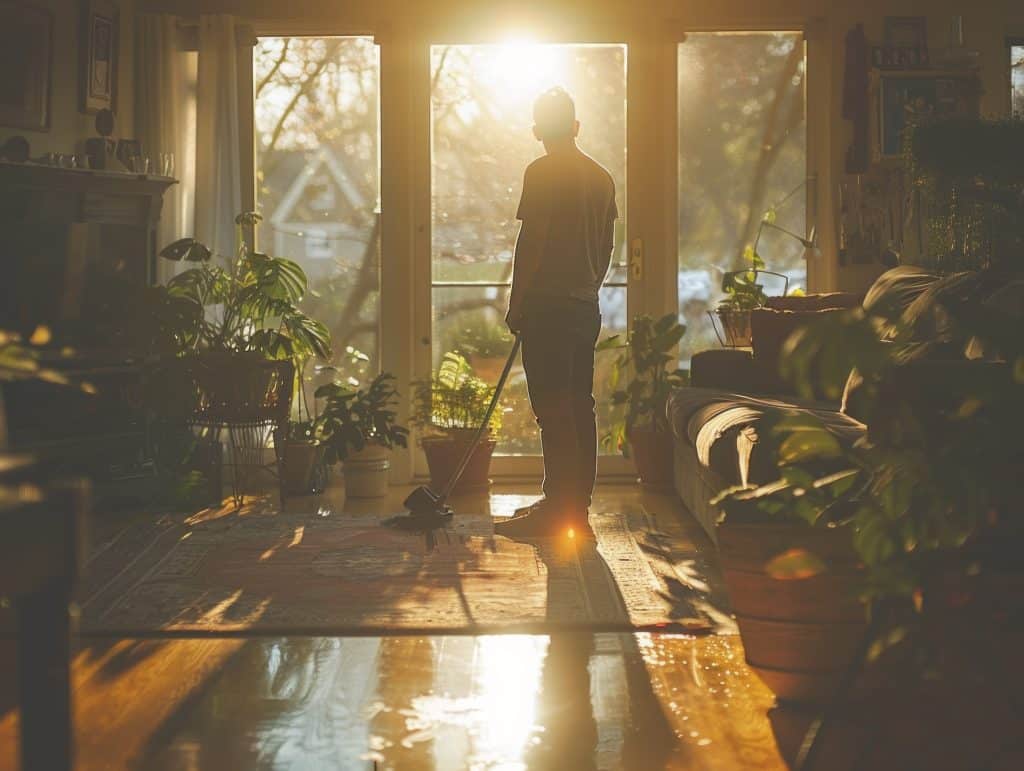How Simple Living Can Lead to a More Fulfilled Life
Ella Knight August 8, 2025
In today’s fast-paced world, we’re constantly bombarded by distractions. Whether it’s overflowing closets, endless to-do lists, or the pressure to keep up with society’s expectations, it’s easy to feel overwhelmed. Despite having more than ever, many people are finding themselves stressed, disconnected, and less satisfied.
Simple living offers a solution—a lifestyle that focuses on reducing clutter, eliminating distractions, and prioritizing what truly matters. This movement is about intentionally choosing quality over quantity, purpose over excess, and mindfulness over busyness. Embracing this lifestyle leads to greater fulfillment, happiness, and well-being.
In this article, we explore how simple living can help you achieve a more fulfilling life, the benefits of minimalism, and practical tips for adopting a simpler, more intentional lifestyle.

What is Simple Living?
Simple living is the practice of minimizing material possessions, reducing distractions, and focusing on the essentials. It’s about intentionally living with less to create space for what truly matters—whether that’s meaningful experiences, relationships, or personal well-being.
While simple living looks different for everyone, it shares some common principles:
- Decluttering: Removing unnecessary possessions to create a calm and organized space.
- Mindfulness: Being present and intentional with your choices and time.
- Sustainability: Making choices that contribute to both personal and environmental well-being.
- Experiences over possessions: Prioritizing meaningful experiences and relationships rather than material goods.
By simplifying your life, you can gain clarity, reduce stress, and focus on what truly brings you joy and fulfillment.
Why Simple Living Leads to Greater Fulfillment
Adopting a simpler lifestyle offers several key benefits that contribute to greater happiness and well-being. Here’s how simplifying your life can lead to a more fulfilled existence:
1. Reduction of Stress and Anxiety
A cluttered space often leads to a cluttered mind. When surrounded by possessions, unfinished tasks, and constant distractions, it can be hard to focus and relax. Research published in Psychology Today shows that physical clutter can increase stress and anxiety levels, as our brains become overwhelmed by the visual chaos around us.
By decluttering your home and simplifying your routines, you create an environment that promotes calm and focus. Fewer distractions allow you to focus on what truly matters, leading to a greater sense of control and well-being.
2. Improved Financial Health
One of the core tenets of simple living is reducing unnecessary consumption. In today’s consumer-driven society, it’s easy to fall into the trap of purchasing things you don’t need. Over time, this leads to financial strain, debt, and dissatisfaction.
Simple living encourages mindful spending. By focusing on needs rather than wants, you can reduce unnecessary expenses, save money, and avoid the cycle of consumerism. According to a study from The Journal of Consumer Research, people who focus on experiences over possessions report higher levels of happiness. By spending less on material goods, you can invest more in meaningful experiences, savings, or other things that contribute to long-term well-being.
3. Stronger Relationships
When life is busy and filled with distractions, it’s easy to let relationships take a back seat. The constant pursuit of “more”—more work, more possessions, more achievements—can cause us to lose sight of what truly matters: the people we care about. Simple living encourages you to slow down, prioritize relationships, and spend more time with loved ones.
A study by The National Institutes of Health found that individuals with strong social connections have lower stress levels, improved mental health, and a higher quality of life. By simplifying your life, you can create space for deeper connections and more fulfilling relationships.
4. Improved Well-Being and Mental Clarity
Living with less doesn’t just help reduce stress—it can also improve your mental clarity and emotional health. When you eliminate distractions and focus on the essentials, you make space for self-care, reflection, and personal growth.
A 2019 study by The Journal of Positive Psychology found that individuals who engage in mindfulness practices—such as meditation, journaling, or simply being present in the moment—experience greater happiness and well-being. By simplifying your environment and routines, you free up mental space for introspection and self-improvement.
Current Trends in Simple Living
The trend toward simple living has been gaining momentum in recent years, with more individuals opting for minimalist lifestyles and mindful living practices. Here are some notable trends contributing to this shift:
1. Minimalism
Minimalism is one of the most widely recognized movements in simple living. Advocates of minimalism, such as Marie Kondo and Joshua Becker, encourage individuals to declutter their homes and lives, focusing on what truly adds value. This trend has gained widespread popularity, with millions embracing the idea of owning fewer possessions to lead more meaningful lives.
2. Tiny House Movement
The tiny house movement encourages individuals to downsize their living spaces and embrace simpler, more sustainable living. The goal is to reduce living costs, lower environmental impact, and create a lifestyle that focuses on quality of life rather than accumulation of material goods. According to Forbes, the tiny house movement has grown significantly in recent years as more people seek financial freedom and a simpler way of living.
3. Digital Detox
In our tech-driven world, it’s easy to become overwhelmed by constant digital distractions. A growing trend is the digital detox—setting aside time to disconnect from technology and focus on real-world interactions. According to research by The American Psychological Association, reducing screen time and taking breaks from social media can help reduce stress, improve mental clarity, and promote better mental health.
4. Sustainable Living
Sustainability is increasingly linked to simple living. People are becoming more conscious of their environmental impact and are making choices that reflect their values. From reducing waste to choosing eco-friendly products, sustainable living encourages individuals to focus on long-term well-being rather than short-term consumption.
How to Embrace Simple Living in Your Own Life
Adopting a simpler lifestyle can seem daunting at first, but there are many practical steps you can take to begin your journey. Here are some simple ways to embrace simple living and start leading a more fulfilling life:
1. Declutter Your Space
Start by decluttering your home. Take it one room at a time and remove anything that no longer serves a purpose or adds value to your life. Donate or sell items you no longer use, and organize what remains in a way that promotes a sense of calm and order.
2. Prioritize Experiences Over Material Possessions
Shift your focus from acquiring things to enjoying experiences. Spend time with loved ones, travel, pursue hobbies, or engage in activities that bring you joy. Studies have shown that experiences—whether it’s a vacation, a hobby, or a shared moment—contribute more to long-term happiness than material goods.
3. Practice Mindfulness
Incorporate mindfulness practices into your daily routine. Whether it’s meditation, journaling, or simply taking a walk in nature, mindfulness helps you stay present and focused on the moment. By practicing mindfulness, you can reduce stress, improve mental clarity, and foster a greater sense of well-being.
4. Reduce Digital Distractions
Take regular breaks from technology to reconnect with yourself and others. Designate tech-free zones in your home, limit screen time, or have designated “unplugged” hours each day. Reducing digital distractions allows you to focus on real-world experiences and relationships, leading to greater fulfillment.
5. Simplify Your Commitments
Take a step back and assess your obligations. Are there activities or commitments that are draining your time and energy? Simplify your schedule by saying no to things that don’t align with your values or goals. This creates more time and space for what truly matters.
Conclusion
Embracing simple living is a transformative way to create a more fulfilled life. By reducing distractions, focusing on what truly matters, and prioritizing well-being over material wealth, you can find greater happiness and peace. Whether it’s decluttering your home, focusing on experiences, or practicing mindfulness, simple living offers a path to a more meaningful, intentional life.
As this movement grows, more individuals are discovering the power of simplicity in achieving true fulfillment. By taking small steps to simplify your life, you can unlock greater happiness, reduce stress, and create lasting connections that enrich both your personal and professional life.
Reference
- Minimalist Interior Design: Embracing Simplicity in 2025, https://decormatters.com
- Mindfulness for Your Health, https://newsinhealth.nih.gov
- Goodbye materialism: https://pmc.ncbi.nlm.nih.gov







